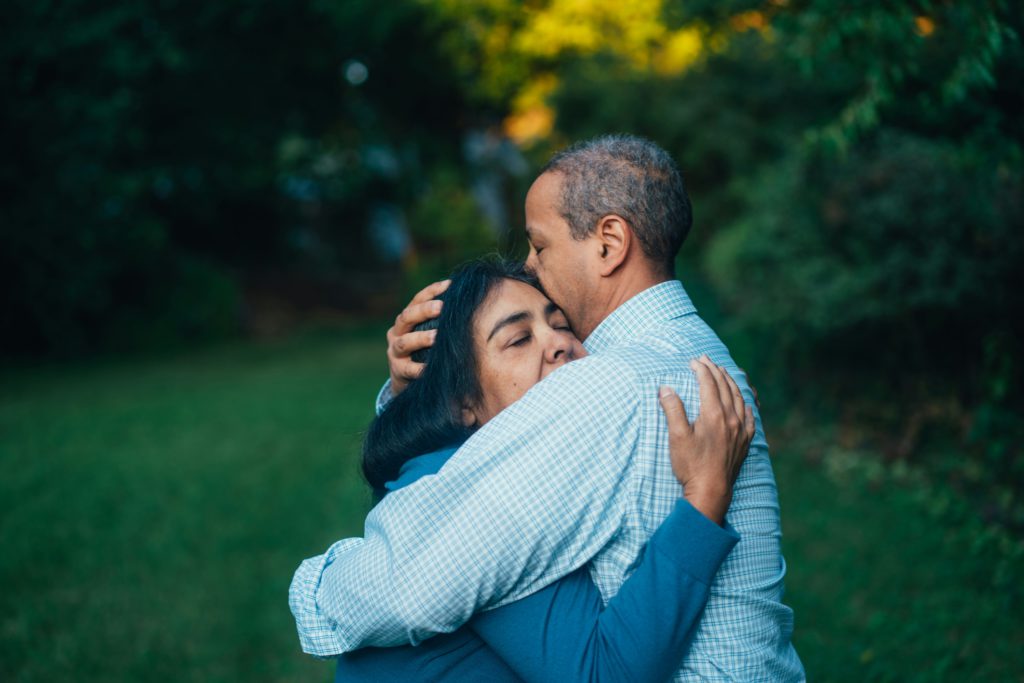A Forgiveness Check: Is Your Forgiveness Real?
A Forgiveness Check: Is Your Forgiveness Real?
Categories: AACC BLOG
by Dan Seaborn

Lately, I have been thinking about what it means to forgive someone. As Christians, we hear about forgiveness regularly, and it’s become such a familiar concept that we don’t always think too deeply about it.
Personal experience has taught me just how hard forgiveness can be. It can also be difficult to tell if you’ve genuinely forgiven someone. If you think you’ve forgiven someone, here are some questions to ask yourself:
First, can you pray for a special blessing in their life?
You know you’ve made a breakthrough in your struggle to forgive if you can pray for the person. It’s natural to want the person who hurt you to experience the same degree of hurt—but when you start rooting for the person who wronged you and stop rooting against them, you know that you’re making real progress.
Reliving the hurt may feel productive, but there’s a big difference between working through your pain and simply wallowing in it. When you reach the point of wishing the best for the other person, you’ve made a significant breakthrough.
As Christians, we know that God commands us to forgive. “Though Scripture contains numerous instances of this command, Ephesians 4:32 (New International Version Bible, 2011, Ephesians 4:32) commands us to “‘Be kind and compassionate to one another, forgiving each other, just as in Christ God forgave you.'” This instruction to forgive is a powerful reminder that we follow God’s example when we forgive others.
Second, do you feel bitterness when you see someone who hurt you?
I don’t mean they need to become your new best friend or be privy to your innermost life—that closeness level is inappropriate in most situations. But if you harbor bitterness toward the person and cling to the hurt they have caused when you see them, you likely haven’t truly forgiven them.
If somebody has hurt you deeply, there’s a good chance that the person was already a part of your life in one way or another. That means you’ll probably see them again at some point, even if it’s just a chance encounter at the grocery store or a social gathering. They might be members of your family, or they might be co-workers. View these encounters as a chance to gauge how the process of forgiving is going.
Sure—you’ll probably have a flash of negative emotion when you first catch a glimpse of them. But after that initial reaction, do you stoke those flames of anger and bitterness? Or do you acknowledge deep hurt, mourn how the relationship has changed, and focus less on the anger and more on other emotions?
The measure of forgiveness is not our ability to pretend like something never happened. Instead, forgiveness is choosing not to hold an offense against the offender.
But just like deep wounds on our body can leave scars that never fully go away, deep emotional and relational hurts can leave scars, too. If you’re trying to forgive and feeling defeated because you still feel hurt, please know that still being hurt and sad doesn’t automatically mean you’re failing to forgive. In fact, feeling more hurt than anger is a step in the right direction.
Forgiveness is a process; the key is letting go of anger, bitterness, and resentment. Your ultimate goal is not that you’re able to be a blank slate and act like the hurtful thing never happened in the first place. When you work to follow God’s example and forgive the people who have hurt you, you’ll start to see real change in your life and your family.
_________________________________________________________________________________________
Dan Seaborn is the founder of Winning At Home, Inc., an organization with counselors and coaches that serve over 1,500 client hours per month. Winning at Home also produces media resources and hosts special events aimed at helping marriages and families succeed. Dan has authored 15 books about marriage and family, and his advice has been broadcast to over 350 radio stations across the United States. As a columnist, he has written hundreds of articles about marriage and family and is frequently asked to speak on the topic. Dan holds a master’s degree in Christian Ministries from Indiana Wesleyan University. His best experience, however, has probably come from his own life: being husband to his wife, Jane, for more than 40 years, Dad to his four children, and Grandpa to eight grandchildren.
